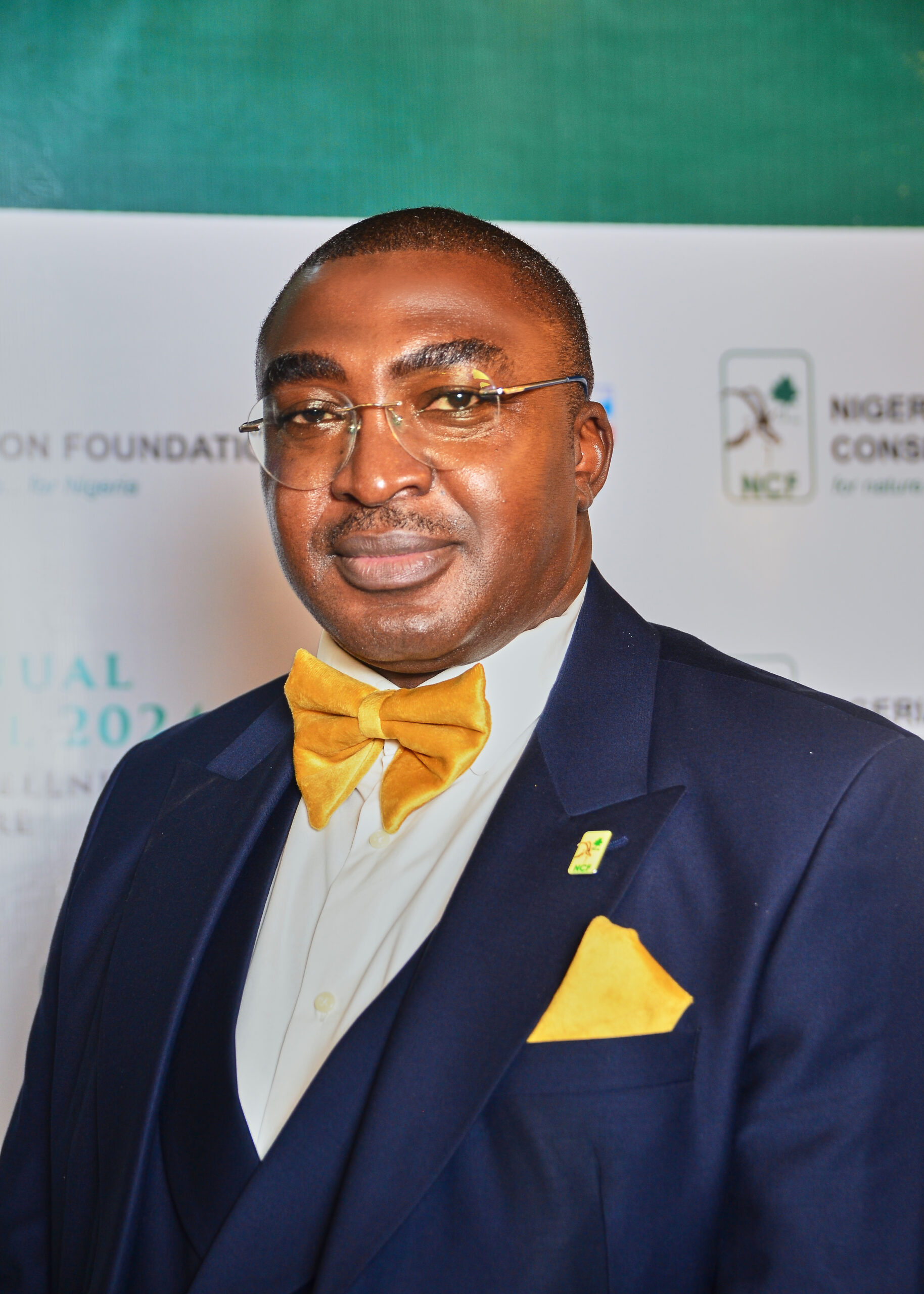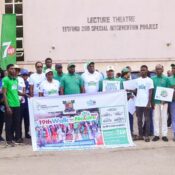
Protecting Wetlands, Protecting Our Future: Reflections on Ramsar COP15
Earlier this year, I had the privilege of representing Nigeria and the Nigerian Conservation Foundation (NCF) at Ramsar COP15. The convention reaffirmed, more than ever, the global urgency of conserving wetlands not only as biodiversity hotspots but as critical buffers for communities in the face of climate change.
Nigeria’s wetlands from the mangrove forests of the Niger Delta to the Hadejia-Nguru floodplains are lifelines. They sustain people, protect ecosystems, and connect us to the world through migratory bird flyways. But they are under pressure. This is why Ramsar COP15 is so significant for us as a nation and as part of a global community.
What Ramsar COP15 Means for Nigeria
Ramsar is an Iranian city where the treaty for the conservation and wise use of wetlands was first signed in 1971. Since then, countries that are Parties to the convention meet every few years to review progress, renew commitments, and set new targets for wetland conservation.
For Nigeria, Ramsar is not an abstract convention. It is a framework that helps us protect our wetlands of international importance and ensures we remain part of a collective global effort.
Why Wetlands Matter More Than Ever
Wetlands are more than scenic landscapes. They recharge groundwater, provide fish and fertile soils, support biodiversity, and act as natural defences against floods and droughts. In short, they sustain life.
“Wetlands build resilience—absorbing floods, sustaining communities in dry seasons, and serving as biodiversity hotspots.”
Communities living near wetlands rely on them for food, water, transport, and livelihoods. When we protect wetlands, we are safeguarding both people and nature.
Nigeria’s Unique Wetland Heritage
Nigeria is blessed with diverse wetlands: the Apoi Creek Forest, Baturiya wetlands, Lake Chad wetlands, the Niger Delta, and the Hadejia-Nguru wetlands, which alone host more than 120,000 birds across 69 species. These wetlands are globally significant stopover points for migratory birds from Europe.
The Ramsar framework strengthens our ability to conserve these critical ecosystems while supporting local communities who depend on them.
Key Resolutions and Nigeria’s Role
At COP15, one of the most important outcomes was the establishment of the Waterbird Estimate Partnership, a global initiative to coordinate waterbird counts. Nigeria, through the East Atlantic Flyway, will play a key role in this effort.
As BirdLife International’s partner in Nigeria, NCF has been organizing the annual waterbird census for years. Our expertise now feeds directly into this global partnership, preparing us for the World Waterbird Estimate in 2027.
We also engaged with the Ramsar Secretary General, Dr. Musonda Mumba, who called on Nigeria to fully implement its commitments. This aligns with our plan to designate six new Ramsar sites in the near future. A very pivotal step forward for wetland protection in Nigeria.
Wetlands, Climate Change, and the Role of Youth
Climate change threatens wetlands through droughts, shrinking water bodies, and biodiversity loss. To confront these challenges, we must work across conventions and engage all stakeholders.
Youth are at the heart of this effort. At COP15, the Youths for Wetlands coalition was launched, and NCF signed on. Across Nigeria, young people already lead annual bird counts, many in coastal and mangrove habitats.
“Youth have the energy, innovation, and expertise to drive wetland conservation in new ways.”
By equipping them with skills and opportunities, we are securing the future of conservation.
The Urgency of Updated Wetland Data
One of Nigeria’s proposals at COP15 was the need for updated wetland inventories. Outdated data hampers effective management. Some wetlands may have degraded, while others may have changed in size or function.
“Outdated wetland data is not useful. Updating it is critical to know what we still have and how to conserve it.”
This review has already led to six additional wetlands being proposed for international recognition—proof that data is the backbone of conservation.
From Global Decisions to Local Action
Conservation is borderless. A bird migrating from Europe to Nigeria relies on wetlands in multiple countries along the way. If one country conserves and another destroys, the birds are at risk. This interdependence is why global conventions like Ramsar matter.
Freshwater, often taken for granted, is becoming scarcer and a potential source of conflict.
“Freshwater may look renewable, but the way we are using it, it is becoming non-renewable.”
For Nigeria, conserving wetlands is not just an environmental obligation; it strengthens our case for international financial and technical support.
Africa’s Voice Ahead of Climate Week
The shrinking of Lake Chad now less than 5% of its original size is a sobering example of how climate change devastates wetlands. Africa Climate Week will be an opportunity for the continent to unite around financing, renewable energy, youth, and community resilience, ensuring Africa goes to COP30 in Brazil with one strong voice.
Bridging Traditional Knowledge and Science
For generations, indigenous communities have conserved landscapes, drawing on knowledge passed down through time. They rely on wetlands for food, medicine, and livelihoods.
“Without the knowledge of indigenous communities, we would not be talking about wetlands conservation today.”
Science must work hand in hand with traditional knowledge. True conservation will only be achieved when every voice from policymakers to indigenous groups is heard and valued.
A Call to Action for Policymakers and Communities
The future of wetlands depends on all of us. Policymakers must not only pass strong laws but ensure they are enforceable.
Communities, on the other hand, must guard their resources. Wetlands are their lifeline and selling them off for short-term gain undermines their future.
“Don’t trade your children’s future for short-term gain. Guard your resources jealously.”
Above all, we must remember:
“Wetlands are not apart from us; they are a part of us. If we fail to protect them, they will fail to protect us.”
Conclusion
Wetlands are the foundation of resilience for people, biodiversity, and the climate. As Nigerians and as Africans, we cannot afford to neglect them. The Nigerian Conservation Foundation remains committed to leading this charge, but it is a responsibility we all share.
Protecting wetlands is not charity. It is survival.



